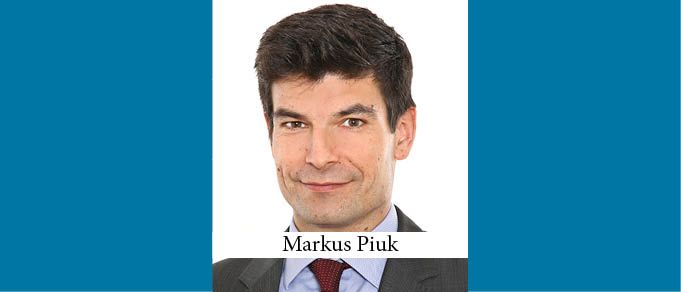After years of anticipation, the EU General Data Protection Regulation (GDPR) entered into force and took effect on May 25, 2018, bringing about several changes to Europe’s current data protection regime.
Gauging the GDPR in the Czech Republic
On May 25, 2018, the General Data Protection Regulation finally came into effect, imposing new requirements on organizations within the European Union and on those outside the EU that offer goods or services to EU data subjects or monitor their behavior. To learn more about the state of readiness in one such country, we spoke to Schoenherr attorney and Data Protection specialist Eva Bajakova in Prague.
Inside Out: Schoenherr and Freshfields Advise on Vonovia Public Takeover Offer for BUWOG
On January 4, 2018 CEE Legal Matters reported that Schoenherr had advised BUWOG AG and Freshfields Bruckhaus Deringer had advised Vonovia SE on Vonovia’s voluntary public takeover bid of BUWOG. The takeover offer placed the enterprise value of BUWOG at around EUR 5.2 billion. We reached out to several of the individuals involved in the deal for information: Christian Herbst, Partner, Schoenherr and Thomas Zottl, Partner, Freshfields Bruckhaus Deringer
Now or Never: The Looming GDPR Deadline
The European Union’s General Data Protection Regulation is, according to the EU-hosted GDPR website, “the most important change in data privacy regulation in the past 20 years.” The Act, which was approved by the EU Parliament on April 14, 2016 and will become fully effective on May 25, 2018, was designed “to harmonize data privacy laws across Europe, to protect and empower all EU citizens’ data privacy, and to reshape the way organizations across the region approach data privacy.”
Smiles from the Middle of Europe: Good Times in Austria
Unlike those of its neighbours to the East, Austria’s economy was allowed to operate free of communist interference, allowing the country to hit well above its weight, comparatively-speaking. Thus, although Austria is the 11th biggest country in CEE in population, with 8.7 million people, it has the third largest economy, behind only Russia and Poland. And these days, with the global financial crisis now firmly in the rearview mirror, the country is once again able to capitalize on its happy geographical positioning and historical relationship with the former members of the Austro-Hungarian empire.
Turkey’s Focus on Renewables
As the host of the world’s 17th largest economy and 19th largest population, Turkey’s energy needs are significant – and growing. The country’s energy demand is expected to grow about 5% each year for the immediate future, and the Turkish government has announced its plans to increase the share of renewable sources in the country’s total installed power to 30% by 2023.
Venture Capital Structures in Bulgarian Start-Ups
Venture capital investments in Bulgarian start-ups are on the rise, and modern legal structures such as share option plans and convertible notes can, if local law peculiarities are taken into account, be applied in the country.
Employees Participating in Company Management: The Road to Hell is Paved with Good Intentions
The old Czech Commercial Code, which dated from 1991, prescribed that one third of the supervisory board of joint-stock companies with more than 50 employees must be elected by the employees. This originally brief regulation became increasingly complex, and by the time the Commercial Code was repealed thirteen years later it included detailed instructions on the matter.
Dentons Claims the Prize: The 2018 CEELM Budapest Law Firm Bowling Challenge
After a long year of waiting, law firms from Hungary finally had the opportunity to show off their bowling skills again last night, as the second year of the CEE Legal Matters Budapest Law Firm Bowling Challenge brought 14 four-person teams together for an intense challenge, with the proceeds donated to the winning team's charity of choice.
Romania’s Tax Boiling Pot Spills Over
Keeping track with the( hundreds of) changes to the Romanian tax legislation has never been an easy endeavor. This year things have been taken to a whole new level, as fiscal predictability, scarce as it was before, has disappeared entirely.
Inside Out: Lactalis’ Acquisition of Covalact Dairy Producer from SigmaBleyzer
The Deal: In July 2017, CEE Legal Matters reported that Romania’s Leroy si Asociatii law firm had advised France’s Lactalis group on its acquisition of Romania’s Covalact S.A. dairy producer from the SigmaBleyzer private equity firm, with Schoenherr advising SigmaBleyzer on the deal.
Not Convinced: Romania’s Lawyers Worry That Economic Indicators Paint a Misleading Picture
Although Romania claims the highest GDP growth rate in Europe and a low unemployment rate, all is not rosy in the seventh most populous member state of the European Union, and prominent lawyers in the country admit to profound dissatisfaction with the country’s leadership and concern about its long-term prospects.
The Corner Office: Your Favorite Question
In The Corner Office we invite Managing Partners at law firms across the region to share information about their unique roles. The question this time around: What is your favorite question when interviewing a job applicant, and why?
Guest Editorial: Big Wheel Keep on Turnin’
Traveling the region on legal business I sense a lot of buzz surrounding law firms in CEE. Headline transactions are numerous and deal-pipelines appear to be well-fueled. With the tailwind of news about solid economic growth in the European Union there are good chances that this trend will last. The future for law firms in the region looks brighter than ever. But there are also challenges ahead of us as the legal industry, in CEE as everywhere else, is headed for some turbulent times.
Experts Gather in Prague for CEE Legal Matters’ Annual Year-End Round Table
On Thursday, November 30th, leading legal practitioners from across Central and Eastern Europe gathered in Prague to help CEE Legal Matters celebrate its fourth successful year as the leading chronicle of the legal industry in the region, participating in an expert Round Table conversation about the year just concluded and enjoying an evening of dinner, drinks, and bonhomie.
When Public Meets Private: Offenses Committed by Members of Arbitral Tribunals or in Connection Thereto
MOTTO: No judge writes on a wholly clean slate.
2017 Hungary GC Summit Off to a Fast Start
The 2017 Hungary GC Summit is underway at the Boscolo Budapest Hotel in the Hungarian capital.
Schoenherr's Daniel Gera's Thoughts on the Upcoming Hungary GC Summit
As the CEE Legal Matters team prepares for the upcoming Hungary General Counsel Summit, we sat down with Daniel Gera of Schoenherr to learn about the panel discussion he will be leading titled "Preparing for the General Data Protection Regulation - Challenge or Opportunity."



















